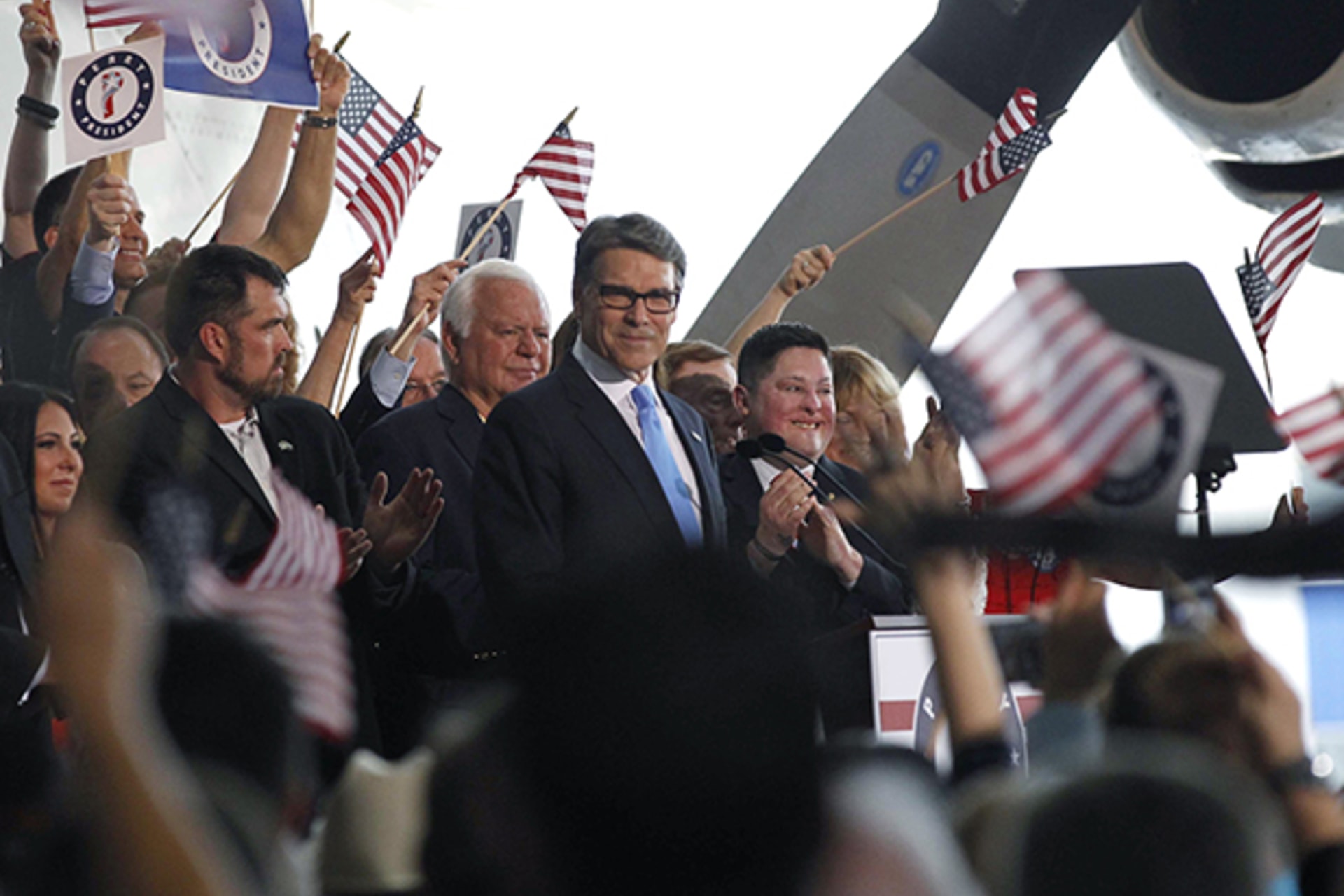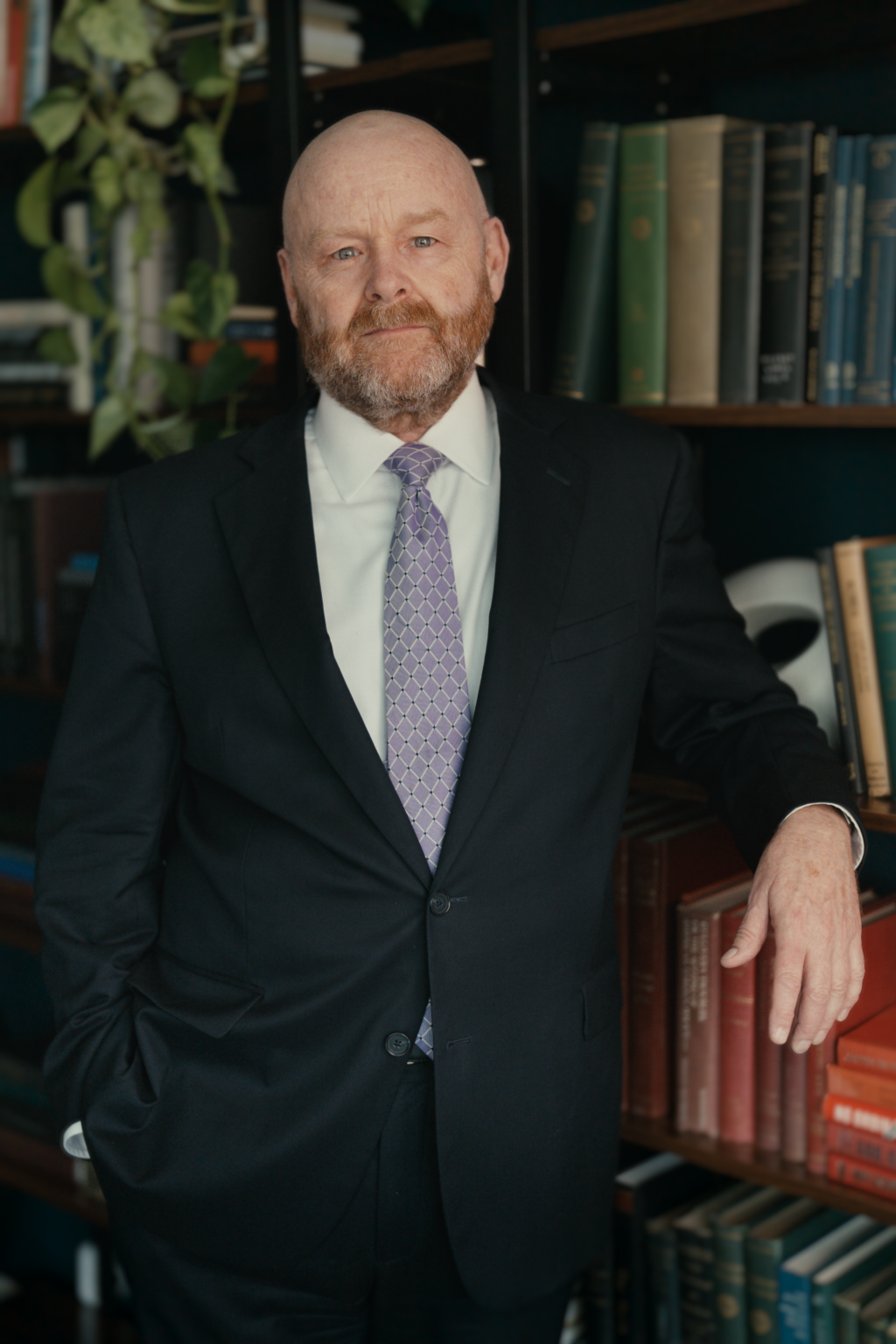Campaign 2016: Rick Perry, GOP Presidential Candidate

By experts and staff
- Published
Experts
![]() By James M. LindsayMary and David Boies Distinguished Senior Fellow in U.S. Foreign Policy
By James M. LindsayMary and David Boies Distinguished Senior Fellow in U.S. Foreign Policy
Can you get a second chance to make a first impression? Rick Perry hopes so. When the former Texas governor threw his hat into the presidential ring back in 2011, he was a favorite to grab the nomination. But his campaign faltered badly, most famously after a televised GOP primary debate in which he couldn’t remember the name of one of the three federal agencies he had promised to close. The experience didn’t diminish Perry’s confidence in his political skills or his presidential chances. Yesterday he announced that he is again running for the White House. If he is to succeed, he will need to triumph over a GOP field that stands at ten official candidates and counting. With Ted Cruz and Rand Paul already in the race, Perry is the third Republican presidential candidate with ties to the Lone Star State—with one more candidate with Texas ties waiting in the wings.
I profiled Rick Perry when he joined the presidential race four years ago. He has been brushing up on foreign policy over the past year. He intends to emphasize events overseas, or at least what he sees as President Obama’s mishandling of them, on the campaign trail.
Perry is withering in his criticism of Obama’s foreign policy. He laid out some of his complaints with the White House in his announcement speech yesterday.
He offered up a more detailed criticism in a speech back in February to the Conservative Political Action Conference. He started with his view of the Islamic State:
Now, this administration’s incompetence in Iraq and Syria have allowed the emergence of ISIS. They’re using American tanks, they’re using American weapons, and ISIS began taking cities that just a few years ago were secured by American blood. Now, let’s be very, very clear about who ISIS is, what they represent. They are a religious movement that seeks to take the world back to the seventh century. Their aims are apocalyptic… And it is their stated vow to kill as many Americans as possible. It’s time; it is time for the American people to hear the truth. The president declared in the state of the union that the advance of ISIS has been stopped, and that is simply not true… To deny the fundamental religious nature of the threat and to downplay the seriousness of it is naive, it is dangerous, and it is misguided. ISIS represents the worst threat to freedom since communism. If Egypt and Jordan recognize that they are at war with radical Islam, isn’t it about time our president proclaimed the same? We didn’t start this war, nor did we choose it, but we will have the will to finish it.
He similarly lambasted Obama’s negotiations with Iran while pledging his support for Israel:
I believe it is fundamentally dangerous to grant Iran’s nuclear ambitions diplomatic cover. Our discussions with Iran should be governed by two, nonnegotiable principals. Number one is Iran should not be allowed to develop nuclear weapons, period and number two, Israel has the right to exist as a Jewish state. Amen. It’s time. It’s time we stood with the most vibrant democracy in the Middle East. The administration’s policy of isolating Israel must stop.
Perry upped the ante in yesterday’s announcement speech. He vowed “My very first act as president will be to rescind any agreement with Iran that legitimizes their quest to get a nuclear weapon.”
Back in February Perry further argued that Obama’s mistakes in the Middle East have emboldened foreign aggressors elsewhere, especially one former superpower:
Watching all of this unfold is the president of Russia. He’s been watching as our president drew a line, a red line, in Syria that was crossed without consequence. And then this Russian president watches our president cancel plans to deploy missile systems in Poland and the Czech Republic. And it was against this backdrop of weakness and empty words that Putin entered Ukraine. And it was those conditions that allowed him to negotiate a one-sided cease fire at Minsk with no real consequences.
The consequences of Obama’s weakness extend beyond overseas conflicts to threats at home in the United States:
Here’s the simple truth about our foreign policy. Our allies doubt us and our adversaries are all too willing to test us. No one should be surprised. No one should be surprised that dictators like Assad would cross the president’s red line because he knows the president won’t even defend the line that separates our nation from Mexico….For the world to be safer, America must be stronger. And for America to be “safer,” our border must be secure. Drug cartels, transnational gangs, they smuggle drugs and weapons and people. They are a clear and present danger to the health and the safety of all Americans. Any conversation, any conversation about comprehensive immigration reform must begin with comprehensive border security. That’s exactly why last summer I told the president, looked him right in the eye and said, if you will not secure the border between Texas and Mexico, Texas will.
Perry has yet to spell out the precise steps he will take to make America both stronger and safer.
More on Perry
The New York Times has “Rick Perry on the Issues.” The Washington Post has Rick Perry on the issues in the 2016 campaign. NPR has “Five Things You Should Know About Rick Perry.” The Atlantic discusses Perry’s advantages on foreign policy. The National Journal explains how Perry is playing up his status as a Washington outsider. The Washington Post reports that Rick Perry is “going all-in on Iowa.” The Wall Street Journal outlines Perry’s challenges in securing Texan donors.
